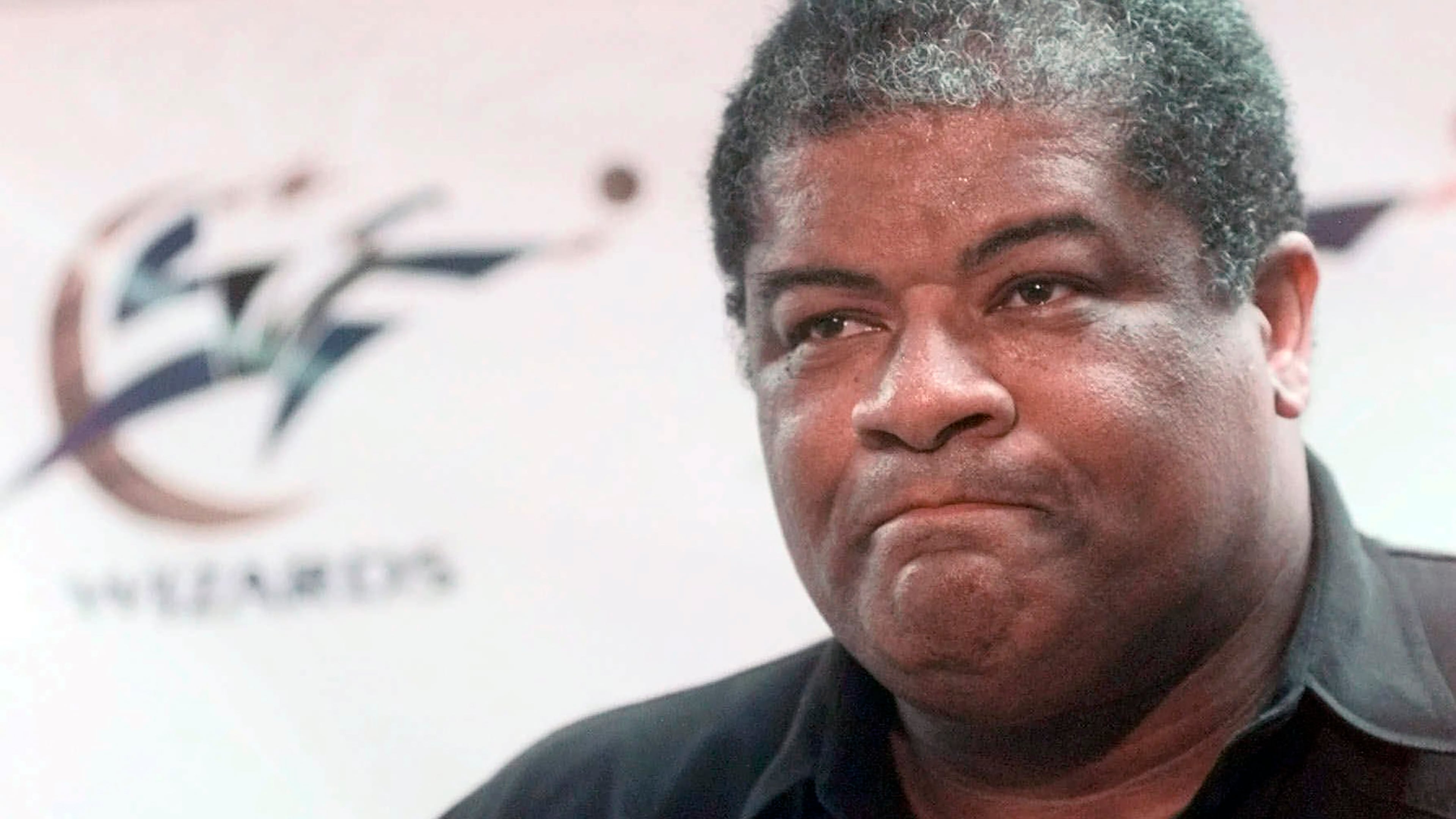Thinking of the great Wes Unseld, and also of us

Wes Unseld was the first great basketball player I saw in person. I was 7. It was March 1963, a Wednesday night. Our Maysville High Bulldogs opened the state tournament against Clay County in Louisville’s Freedom Hall. Bobby Hiles made a free throw at the end. We won 66-65.
We settled back to watch the second game. (Maysville would play its winner on Friday.) I remember the PA man saying, “Goal by Redd,” over and over. Mike Redd, the leading scorer for Louisville Seneca, would soon be named Kentucky’s Mr. Basketball. My dad noted that the reason Redd scored all those baskets was the presence of a huge young man — he was listed as 6-foot-7, 245 pounds — who would rebound Redd’s misses and flip the ball back to him to try again.
That was Wes Unseld, then known as "Wesley," though that wasn't quite his name. Bob White, the Louisville Courier-Journal's longtime prep editor, remembers Unseld calling the paper over the summer between his junior and senior years to say they'd been getting it wrong. "He said to put a 't' in his first name. I guess he was too bashful to bring it up before then."
So: Westley Unseld.
Seneca beat Allen County by 14 in the game we saw. It beat us by 18 in Friday’s quarterfinals. For two years, it beat everybody. It won the state championship that year and, with Redd having graduated, the next. Unseld was Mr. Basketball in 1964. Every college with a gym wanted him, including the one with the famous gym on a street named The Avenue of Champions 78 miles to the east.
Under Adolph Rupp, the Kentucky Wildcats had won four NCAA titles. The school had yet to have an African-American athlete. There was pressure in-state for Unseld to blaze the trail. The Associated Press quoted Frank Stanley Jr., editor of the Louisville Defender and a civil rights leader, as saying of Unseld: "He's not only a great player, but he's got brains, too. Let's face it — he's got to be another Jackie Robinson; he's got to be great. Jackie Robinson was so great he made people want to come see him play baseball, and it's the same sort of thing in the Southeastern Conference."
In a time when recruiting rankings didn't exist, pursuit of Unseld became a daily saga. There was thought he might go to Kansas, where his brother, George, had become a star, and the hometown Louisville Cardinals couldn't be discounted. Rupp drove over to offer a scholarship. Larry Conley, one of Rupp's players, made the trek to make a similar pitch. According to Conley, Unseld told him, "I just don't want to go to Kentucky."
He signed with Louisville. The Courier-Journal ran the story on A-1. He was even better than advertised. He made first-team All-American as a junior and senior. In 1967, Louisville was ranked No. 2 — after UCLA and Lew Alcindor (now Kareem Abdul-Jabbar) — entering the NCAA tournament but was upset in the Midwest Regional by SMU. The Cardinals might have been the nation’s third-best team in 1968 but ran afoul of No. 1 Houston, which stunned UCLA in the Astrodome two months earlier, in the same round. The Cougars’ Elvin Hayes had 34 points and 24 rebounds; Unseld had 22 and 23.
Ten years later, the two would be teammates as the Washington Bullets, as they were then known, took the NBA title. Unseld, who scored only when necessary, was the finals MVP. He’d been the No. 2 pick in the 1968 draft behind Hayes, who went to the San Diego Rockets, and Unseld’s effect on the Bullets, who improved from 36 wins to 57, was so galvanic he was voted league MVP and rookie of the year. (Wilt Chamberlain remains the only other man to achieve that double.)
Unseld’s game was a lovely fusion of savvy and skill and — his halfcourt outlet passes were to him what the sky hook was to Kareem — and immense strength. As a 6-7 center who faced the Hall of Fame likes of Kareem, Wilt, Bill Russell and Willis Reed, Unseld became a Hall of Famer himself. He would later serve as Washington’s coach and its general manager. He remains as respected as anyone who has ever graced the NBA.
Wes Unseld died Tuesday. He was 74. In November 1974, Sports Illustrated quoted him thusly: "I told my mother that if I played in the SEC, I'd set civil rights back 20 years. A lot of people felt I should be the first black to play. I told them I didn't have the right attitude to be a pioneer, that it just wasn't me. I have the same attitude now. I feel if someone is nice to me, then I'll be nice to them. But if someone isn't nice, well, I believe in talking to them in a language that they will understand. If a man spits on me, I'll probably spit back. Feeling like that, I didn't think I'd make a very good barrier breaker."
Many of those barriers have fallen. Perry Wallace of Vanderbilt became the first African-American to play SEC basketball in 1967. Tom Payne of Louisville Shawnee became Kentucky’s first black basketball player in 1970-71. In 1978, the Wildcats won their fifth national championship behind 41 points from Jack Givens, an African-American from Lexington Bryan Station. Twenty years later, the school claimed Title No. 7 under coach Tubby Smith, who’s black.
And yet: How far have we come, really? Unseld signed with Louisville in 1964, the year the Civil Rights Act was passed. But here we are — two decades into a different century, 12 years after an African-American was elected president of these United States — united only in fear and distrust. At such a time, I wonder if we’ve gotten anywhere at all. I wonder if we ever will.

